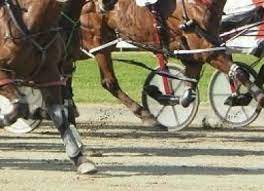At a gala function held at Perth’s Crown Towers Hotel on March 22, to celebrate the winners of the WA Horse of the Year honours for 2024, there was also the formal induction of three new members of the harness racing side of the WA Racing Industry Hall of Fame.
The three new inductees, one each from the horse, trainer/driver and associate categories were Baltic Eagle, Bob Pollock and The Porter Family.
Inaugurated in 2007 by Racing and Wagering Western Australia and covering the Standardbred, Thoroughbred and Greyhound codes, the WA Racing Industry Hall of fame celebrates those who have made an outstanding contribution to the racing industry in Western Australia.
A full-list of the previous harness inductees and their stories can be found at Previous hall of fame inductees.
Baltic Eagle
Rod Chambers experienced the thrill of winning an Inter Dominion when he drove Jack Morris to win the 1993 Final in Brisbane for trainer Sean Harney.
The dust and prevailing easterly winds at his Oakford property robbed the affable Chambers of a second Inter Dominion win.
After winning one of two starts as a 3yo in New Zealand, Baltic Eagle was sold for $50,000 to a group headed by Perth builder Ross North, Mark Congerton, Henry McManus and their respective wives, Baltic Eagle was sent to Chambers to be trained.
The gelding won nine of his first ten starts for Chambers and his future looked bright before a series of lacklustre performances in the summer of 2001 saw the son of Totally Ruthless sent for a lengthy spell.
Resuming in the winter of 2002 Baltic Eagle still struggled to live up to his early form until the vets at Murdoch University diagnosed a lung infection due to a form of asthma aggravated by the dusty conditions where he was being trained in Oakford.
Baltic Eagle was transferred to the stables of Kim Prentice and Prentice utilised the Australind Estuary to train the gelding.
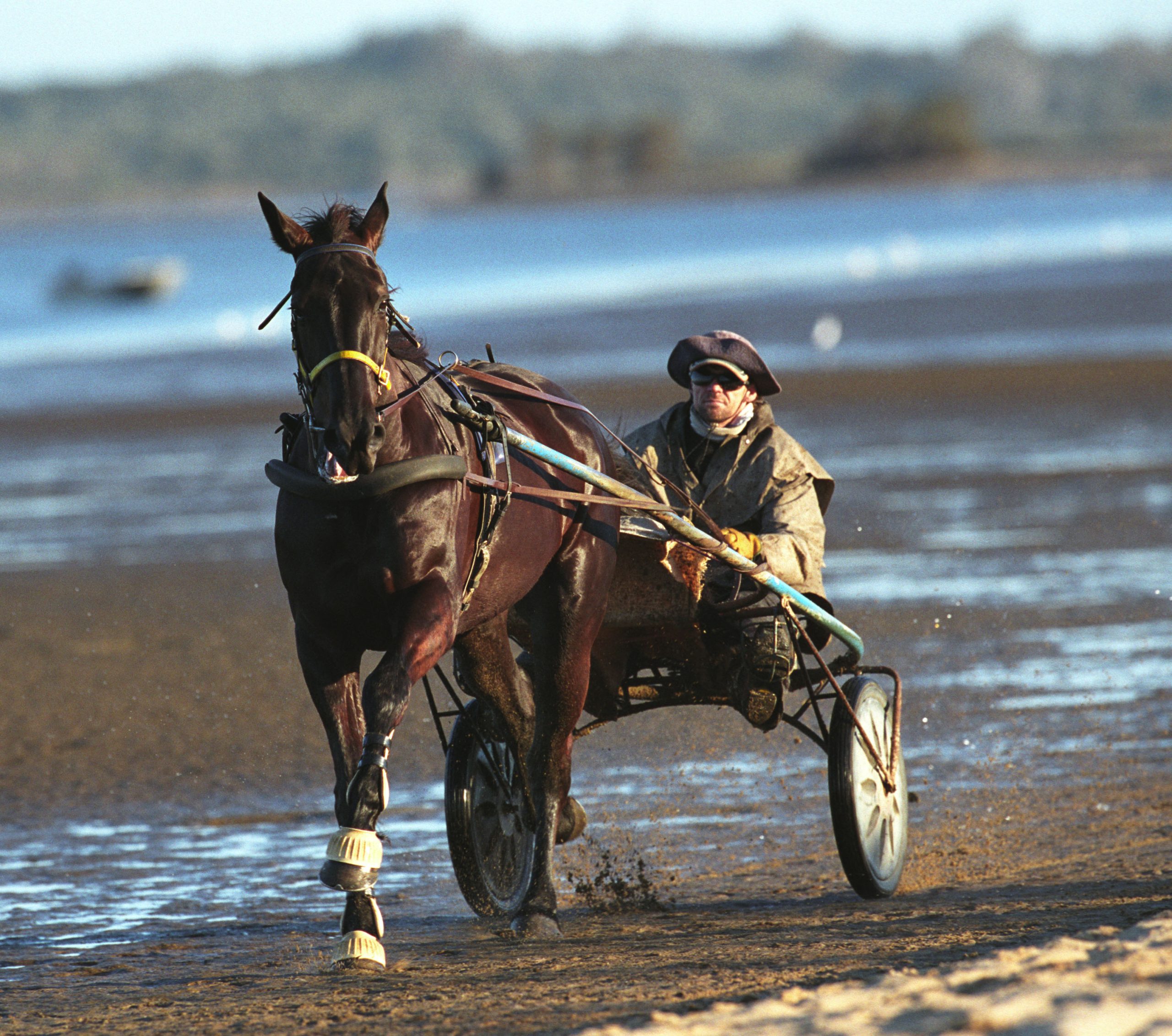
The horse entered Prentice’s stables in September 2002 and the 6yo had his first start for Prentice on New Years Eve 2002 in the Be Active Celebrity Mile which he won comfortably.
Baltic Eagle’s next start was ten days later in the Group One Fremantle Cup but the rise in class was of little concern as Baltic Eagle overcame a 10 metres handicap and cruised home in the 2900 metre standing start race clear of Sokys Raider and Highest Honour.
A fortnight later, in the WA Pacing Cup, Baltic Eagle joined champions The Falcon Strike, Village Kid and Pure Steel as winners of both of Western Australia’s flagship races in the same season.
Only the Gary Hall trained trio of The Falcon Strike, Im Themightyquinn and Chicago Bull have achieved the feat since Baltic Eagle’s triumph.
After his dual Cup triumph in Perth Baltic Eagle’s connections confirmed a trip to managing owner Ross North’s homeland to tackle the Inter Dominion Championship in Christchurch.
While a handful of Australian trained horses had won the Inter Dominion Final in New Zealand none had made the 5000 km trek from Perth to Christchurch.
A stopover in Melbourne saw Baltic Eagle unplaced in the standing start Victoria Cup behind Young Rufus after galloping at the start.
Baltic Eagle was just five metres away in fourth place in the $400,000 Hunter Cup won by Mont Denver Gold from the front mark with Baltic Eagle starting from the 10 metres mark.
Not deterred, Prentice pushed on with the Inter Dominion campaign and was able to replicate the horse’s Western Australian training conditions on a beach at Woodend just north of Christchurch.
Baltic Eagle again thrived on a beach training regime and although a little under-done he finished a close-up fourth in his opening round heat behind Holmes D G, Shakamaker and Oaxaka Lass after starting from the extreme outside in barrier 14.
Baltic Eagle was outstanding in the next two rounds of heats and was a warm favourite when the field lined up for the $500,000 Final.
He led comfortably and finished the race a length clear of fellow Australian Mont Denver Gold and Holmes D G back in third place.
Since Baltic Eagle’s memorable win only the redoubtable Im Themightyquinn has equalled the feat of winning the Inter Dominion in New Zealand in the same season as winning both the WA Pacing Cup and Fremantle Cup.

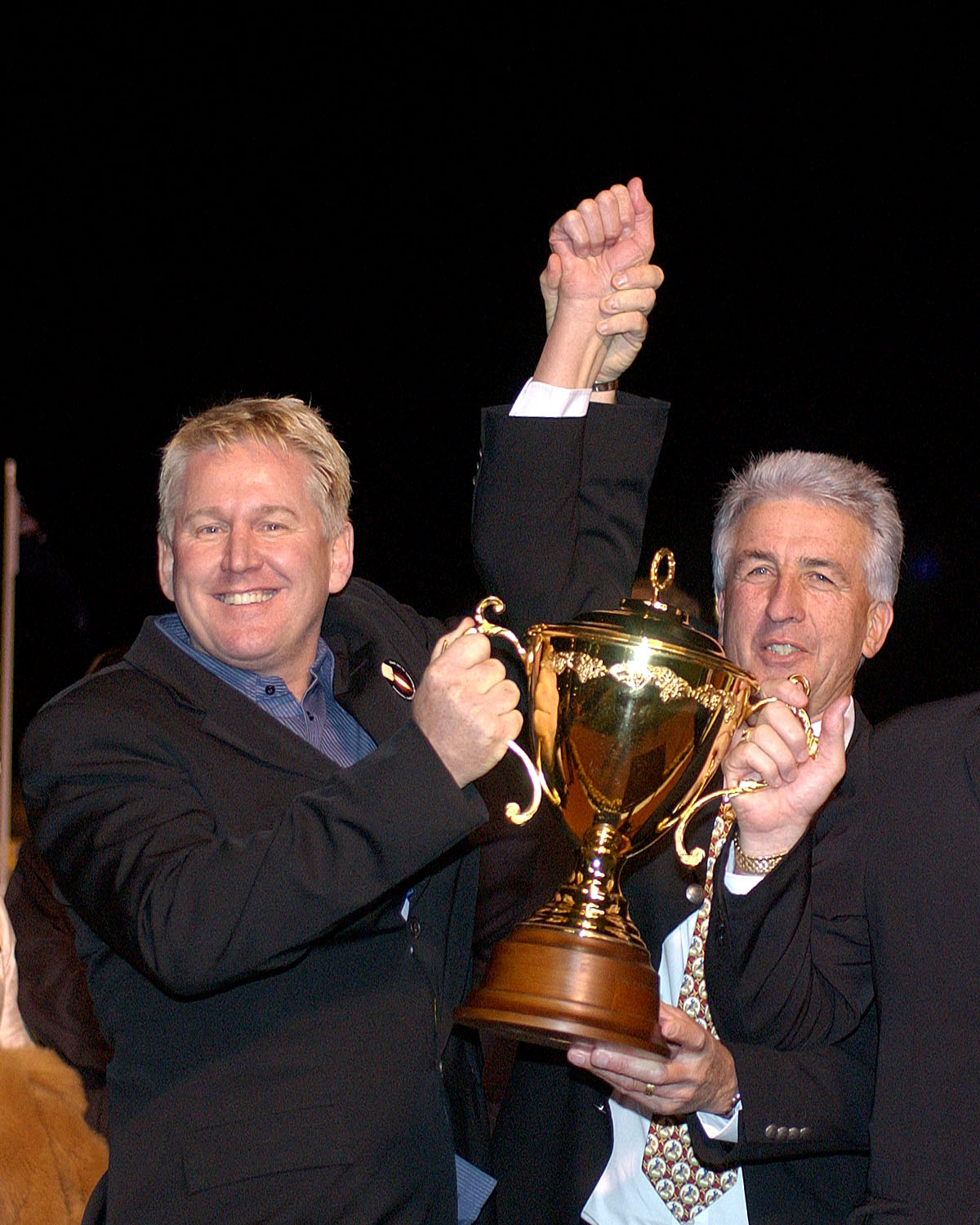 Although winning a Be Active Celebrity Mile and a Fremantle Members Sprint and being placed in both a WA Pacing Cup and Fremantle Cup, Baltic Eagle never quite recaptured his form of the summer of 2003 and he was retired in 2005 with a record of 21 wins and seven minor placings from his 40 career starts and earnings of $746,980.
Although winning a Be Active Celebrity Mile and a Fremantle Members Sprint and being placed in both a WA Pacing Cup and Fremantle Cup, Baltic Eagle never quite recaptured his form of the summer of 2003 and he was retired in 2005 with a record of 21 wins and seven minor placings from his 40 career starts and earnings of $746,980.
Bob Pollock
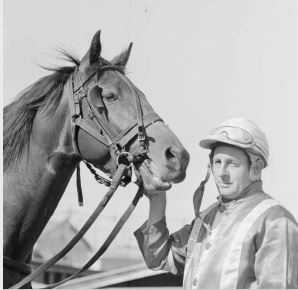
Born in Subiaco on 20 February 1920, Robert Howie Pollock dropped his second initial to avoid confusion with his Scottish immigrant father who had the same given names.
R H (Robert) Pollock was one of the first drivers to be licenced in Perth and both rode and drove some 54 winners in the Perth Metropolitan area at tracks as varied as Claremont, the WACA Ground, Midland Junction and Guildford between 1912 and 1927.
His son Bob Pollock began driving in 1939 and drove the first of 854 winners on the then 15yo New Zealand bred gelding Tommy Dillon on 12 August 1939. He was only four years older than the horse and was having just his third drive in a race.
Just 20 days after driving his first winner the German Army invaded Poland, and the second World War started.
Pollock drove a further two winners shortly before enlisting, like so many others, in the Australian Army in November 1940.
Pollock was a member of the 5th Australian Army Veterinary Hospital based at Fairlawn Stud Farm in Herne Hill, and as a blacksmith Pollock reached the rank of Sergeant before his discharge in January 1945.
After the war, and working as a blacksmith, Pollock first came to notice as the trainer and driver of the smart mare Battle Song which won ten races at Gloucester Park and Richmond Raceway including a heat and final of the £1000 1950 Fremantle Cup and a heat and final of the £2000 Easter Handicap.
The 1953 Inter Dominion was the first to see the arrival of horses by plane for the Championship with the defending champion Avian Derby, the first horse to set foot on the tarmac at Guildford Aerodrome when a Bristol freighter arrived in Perth at 5:30pm on January 29, 1953.
Also on that plane were his stablemates Avondale and Star Music and the champion New Zealand mare Blue Mist.
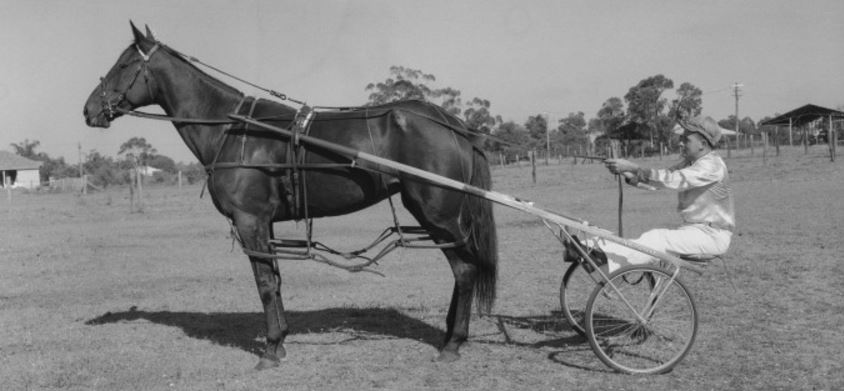
In Perth that year was the 1950 Inter Dominion winner Captain Sandy, by now a 10-year-old and in the care of Dinny Nolan. Nolan had bought Captain Sandy at a time when most thought the gelding was well past his prime.
Born in South Africa in 1908, Dinny Nolan came to Western Australia as a 2yo in 1910 and the family settled on a farm in Western Australia’s Wheatbelt.
His first win as a trainer was in 1928 with Cyclone at the WACA Ground track across the road from the current Gloucester Park circuit.
Somewhat of a nomad, Nolan trained with a good deal of success at various times in South Australia, Victoria and New South Wales before his death from injuries sustained in a car crash on Menangle Road near Camden in August 1965.
Nolan made a bold move of nominating the 10yo Captain Sandy for the 1953 Inter Dominion in Perth and then further confounded the experts when he headed west on a 2900km road trip in a single float to take on the best horses in the Southern Hemisphere.
The Adelaide-Perth trip took a week in searing summer temperatures on a “road” that was little more than a couple of wheel ruts through the dirt.
WA fans were eagerly awaiting the clash between the local four-year-old champion and public idol Beau Don and the star Sydney four-year-old Ribands.
Beau Don had started just 18 times for 13 wins and three seconds. His lack of experience was notable when compared to the 37 races won by Ribands to that point. Beau Don was a brilliant winner on the opening night, as was Ribands, which also won on the second night.
Captain Sandy had been driven by legendary New Zealand horseman Freeman Holmes in the three rounds of heats. However, Holmes had decided to drive the champion mare Blue Mist in the final after qualifying both horses.
Pollock was quickest to realise that Holmes would drive the more fancied Blue Mist in the final and, urged on by a well-meaning mate, he approached trainer Dinny Nolan and was given a trial drive behind Captain Sandy.
It is history now that Pollock became the youngest driver of a Inter Dominion Grand Final winner, piloting the 33/1 chance to a narrow victory over Ribands and Kellett in front of a crowd of more than 40,000 in track record time. Some estimates put the crowd at more than 60,000.
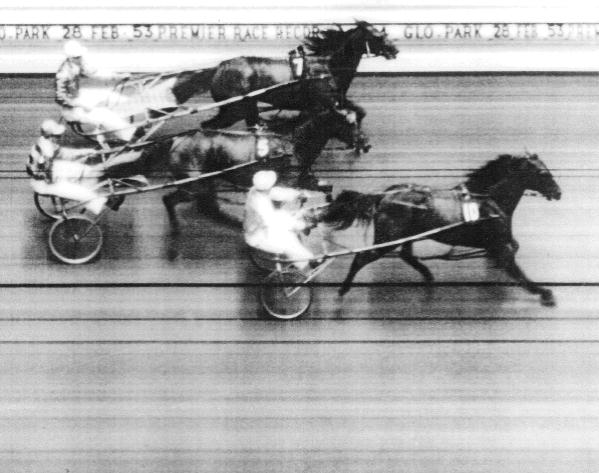 The on-course tote turnover of £60,000 was a new record and the 20,000 racebooks, ordered on a basis of one for every two patrons, sold out before the second race at the meeting.
The on-course tote turnover of £60,000 was a new record and the 20,000 racebooks, ordered on a basis of one for every two patrons, sold out before the second race at the meeting.
Ribands had been sent out as a 6/4 favourite, and it took a track record from Captain Sandy for him to beat the Sydney champion.
With a lap to travel Ribands still led but the Victorian mare Dainty Rose, which had been trailing Ribands, began to tire and Fred Kersley quickly switched Kellett to the mare’s outside and made his dash at the leaders.
In the struggle to obtain the vital position behind Kellett as he raced to the front Pollock beat legendary New Zealand reinsman Freeman Holmes (Blue Mist) to the position and Captain Sandy was able to trail Kellett who was unable to get past Ribands and Pollock was able to swoop on the pair in the closing stages and dash to the front.
Captain Sandy’s win took his earnings to £38,000 and the honour of Australasia’s richest standardbred. Nolan then loaded his champion onto his single float and headed back to Adelaide.
Pollock may have been a little unlucky not to have won a second Inter Dominion.
Binshaw won his first race as a 3yo race at Bunbury on the 8th January 1965 and after a further country win he was sold to a syndicate of Perth owners for 2000 guineas, given a lengthy spell and then transferred to the stables of Bob Pollock.
Pollock won a couple of city races with Binshaw before sending the gelding for a spell.
When the now 5yo resumed in December 1966 he was in the stables of Phil Coulson and nominated for the 1967 Inter Dominion at Gloucester Park which he duly won in a cakewalk.
While Bob Pollock never won Perth Driver’s Premiership he finished in the top three five times between 1959/60 and 1968/69 behind previous Hall Of Fame inductees Phil Coulson, Jim Schrader, Lyle Lindau and Max Johnson.
It was a similar outcome with the Perth Trainer’s Premiership as Pollock was three times runner-up and third three times without ever topping the list.
His list of Pollock’s feature race wins, in addition to his Inter Dominion triumph, included the 1952 and 1953 Easter Cups with Doctor Ted and Blue Mist.
This was at a time when the Easter Cup was ranked second only to the WA Pacing Cup on the Perth calendar and carried a stake of £3500 which ranked it ahead of the £2000 A G Hunter Cup in terms of Australian feature races.
When she won the Easter Cup Blue Mist smashed Captain Sandy’s two-mile record at Gloucester Park and established a New State Record rate of 2:08.0.
Blue Mist obliterated the Easter Cup field and at the two furlong mark she was some 60 yards clear and was eased down by Pollock in the home straight to win by an official margin of 40 yards from Hasty Nelson and Kellett.
Pollock trained and drove Battle Song to win the 1950 Fremantle Cup and won the 1969 WA Derby with the filly Hill Oro for trainer Aub Nelson.
Only two other fillies in Via Vista and Whitbys Miss Penny have won the WA Derby since 1970.
In 1983 Pollock won a heat of that year’s Golden Nugget with Preux Chevalier for trainer Barry Perkins who was suspended. Pollock was also at the reins when the stallion finished third in the final behind Classic Garry and Wondais Mate.
He won a second race for Perkins with Preux Chevalier in 1984.
In 1985 Pollock, while still at the peak of his driving powers, he was forced from the sulky as he reached the then mandatory retirement age of 65 and Pollock didn’t drive for 12 years.
When the anti-discrimination laws changed in the late nineties Bob Pollock returned to race driving as a 77yo and won a couple of races driving the appropriately named Worth The Wait.
Had Pollock remained active in harness racing for each of those 12 years there is no doubt he would have passed both the 1000 career wins and 500 Perth wins milestones.
The Porter Family
Milson John Howard Porter was born in Fremantle in 1894. Throughout his lifetime he was known as ‘Howard Porter’.
His father J W Porter was a coachbuilder, and Howard Porter went into his father’s business listing his occupation as bodymaker when he enlisted in the AIF in July 1916 and he served in the 9th Light Horse Reinforcement as a trooper. He returned to Fremantle in 1919.
Howard Porter began training and driving horses in 1922 and quickly became renowned as a painstaking trainer and reinsman from his stables in Osborne Road East Fremantle.
His sons Jack, Ron and Lyall all became involved with the family’s horses to varying degrees.
The Porters did the bulk of their training on the old Richmond Raceway track at a time when Fremantle was literally full of horses.
Fastwork at Richmond Raceway was like a race-meeting with upwards of 100 horses on the course with the Porter team being driven and led down busy Canning Highway to get to the track.
In 1930 it was reported that a mare called Grand Bells was taken to a race-meeting at Fremantle on the back of a truck by her trainer.
The truck in question was normally used by a sanitary contractor and horse transport was a part-time job achieved by reversing the truck to a ramp to allow loading and unloading.
Howard Porter knew he could do better, and Porter Floats built the State’s first designated horse transporter, capable of transporting nine horses at a time.
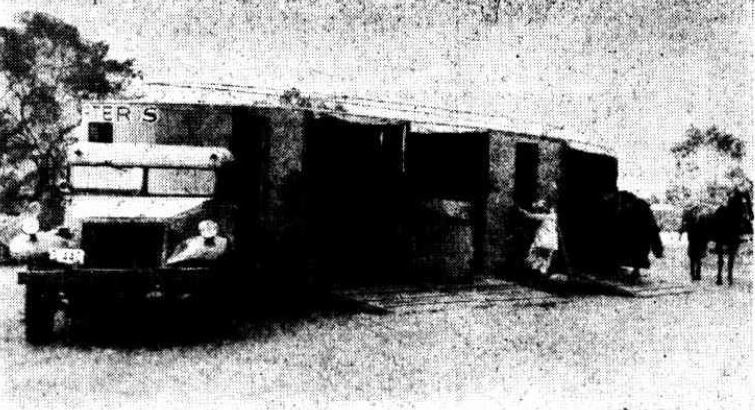
The company serviced both Standardbred and Thoroughbred tracks transporting hundreds of horses across the length and breadth of the State.
Howard Porter established the Porter Group of Companies in 1936, and it remains one of the nation’s leaders in the supply of road transport equipment.
Howard Porter was a foundation member of the Fremantle Trotting Club when the club was officially formed in 1928 and remained a member until he died in 1978.
He was made a Life Member of the Fremantle Club in 1945.
Howard Porter commenced his long career as a trotting administrator in 1943 when he was elected to the Fremantle Trotting Club Committee and when he retired from that committee in 1974, he had served for 31 years.
He was the Fremantle Club President from 1958 to 1966, and Porter also served on the Committee of the Western Australian Trotting Association between 1947 and 1977 and was President of the WATA between 1967 and 1970 at a time when the WATA was the Controlling Body of Trotting in Western Australia.
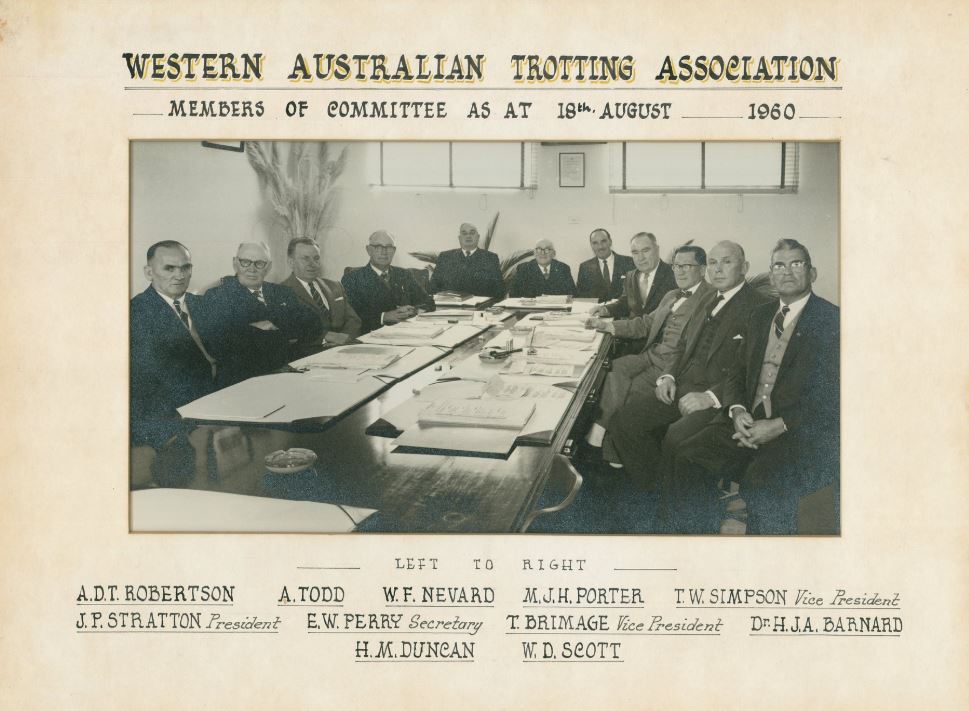
During his term as WATA President, Howard Porter was a WA delegate to the Australian Trotting Council and the Inter-Dominion Trotting Council, attending numerous conferences and Inter-Dominion Championships as an official delegate.
He was also a Foundation Board Member of the Western Australian Totalisator Agency Board.
The Howard Porter grandstand at Gloucester Park stands as tangible recognition of his outstanding contribution to the trotting/harness racing industry in Western Australia.
He trained and drove Big Smoke to victory in a heat and final of the 1931 Fremantle Cup and achieved similar success with Nelson Pronto in a heat and final of the 1938 Fremantle Cup.
In the late fifties Howard Porter won a Sapling Stakes with a second horse called Big Smoke which he had bred himself. The second Big Smoke was trained at various times by his sons Jack and Ron and finished fourth in the 1958 WA Derby behind Beau Travis, Gay Society and Copper Chief.
Howard Porter bred and raced Gay Society which won the WA Sires Produce Stakes a week after the Derby.
Gay Society was to achieve further harness racing fame as the grand dam of the Porter family’s champion San Simeon,
In later years it was to become a family business when two of his sons, Ron and Lyall became fully involved in the family’s breeding and racing operations.
Ron and Lyall Porter were the most active as trainers and drivers although a third son, Jack Porter, also enjoyed some race-track success.
Jack Porter was the trainer of the afore-mentioned Gay Society when she won the 3yo Sires Produce Stakes.
Ron Porter is still regarded by many old-timers as the best money driver ever seen at Gloucester Park.
He trained 155 winners (129 in Perth) and drove 267 winners (227 in Perth) and while he never won a trainer or drivers premiership Ron was 11 times in the top ten drivers on the Perth Drivers Premiership with his best effort being a third behind Leo Keys and Alex McLean in the 1946/47 season.
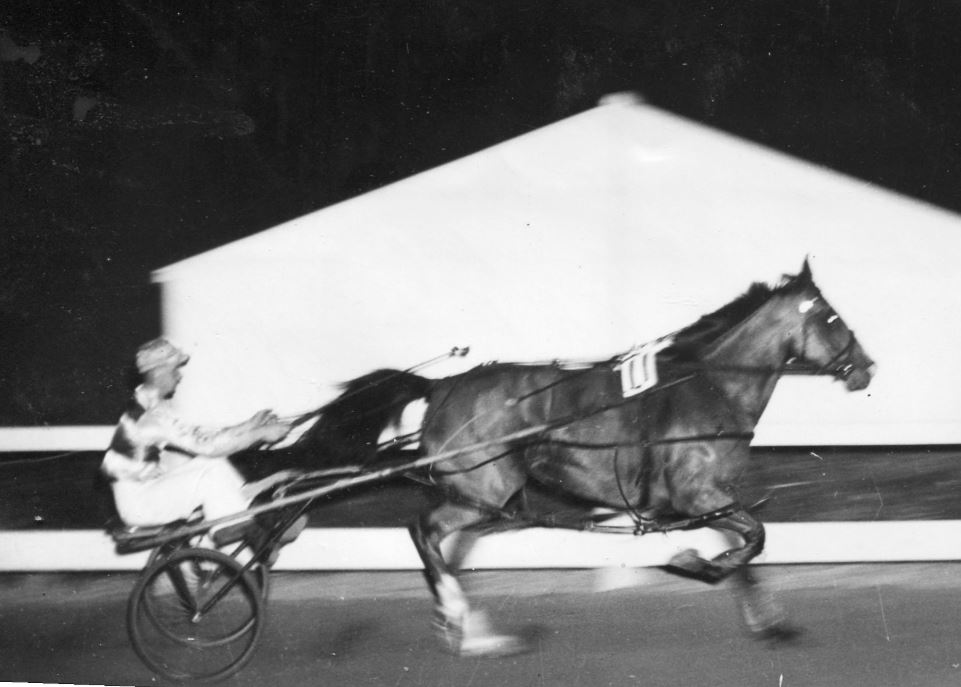
Ron won three WA Pacing Cups as a driver with Black Bertha (1942), Winsome Bobbie (1946) and Leyoro (1962). Black Bertha was trained by his father Howard Porter while Ron trained the other pair.
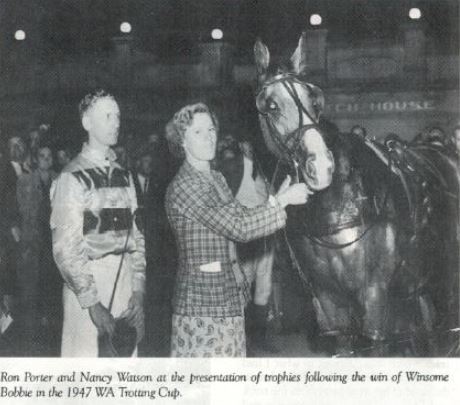 Ron also drove Black Bertha to victory in the 1942 Fremantle Cup for his father and trained and drove the New Zealand bred stallion Beaudale to win the 1952 Fremantle Cup.
Ron also drove Black Bertha to victory in the 1942 Fremantle Cup for his father and trained and drove the New Zealand bred stallion Beaudale to win the 1952 Fremantle Cup.
Lyall Porter drove 26 winners including successive Sires Produce Stakes in 1957 and 1958 with Europa and Gay Society and Free-For-Alls with Leyoro and Pythagoras.
Lyall Porter trained 85 winners with 62 of them in the city including the 1961 Sapling Stakes with Gallant Mark.
In the early seventies Ron and Lyall Porter established Milson Lodge Stud in Armadale as a home for their band of broodmares and as a base for their private trainers which have included at various times Lou Austin, Colin Brown, Rod Starkie and Ian Greig.
Between them the Porter family bred the winners of 660 races with 291 of them in Perth headed by the champion Inter Dominion winner San Simeon, Fremantle Cup winner Gallant Ribbon and WA Oaks winner Leyden.
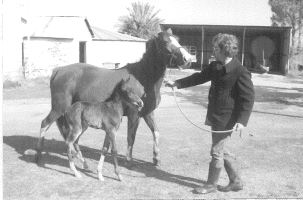
Only 11 breeders in 115 years of trotting in this State have bred more Western Australian winners than the Porter family.
Ron Porter was an active member of the WA Standardbred Breeders Association and was involved in the conduct of the State’s first Standardbred Yearling Sale in 1971 before later serving as the WA Breeders Association President.
The Porter family involvement in harness racing stretches back more than 100 years and they are fittingly the first family to be inducted into the harness side of the WA Racing Industry Hall of Fame.
by Alan Parker for Harnesslink
 USA
USA Canada
Canada Australia
Australia New Zealand
New Zealand Europe
Europe UK / IRE
UK / IRE

